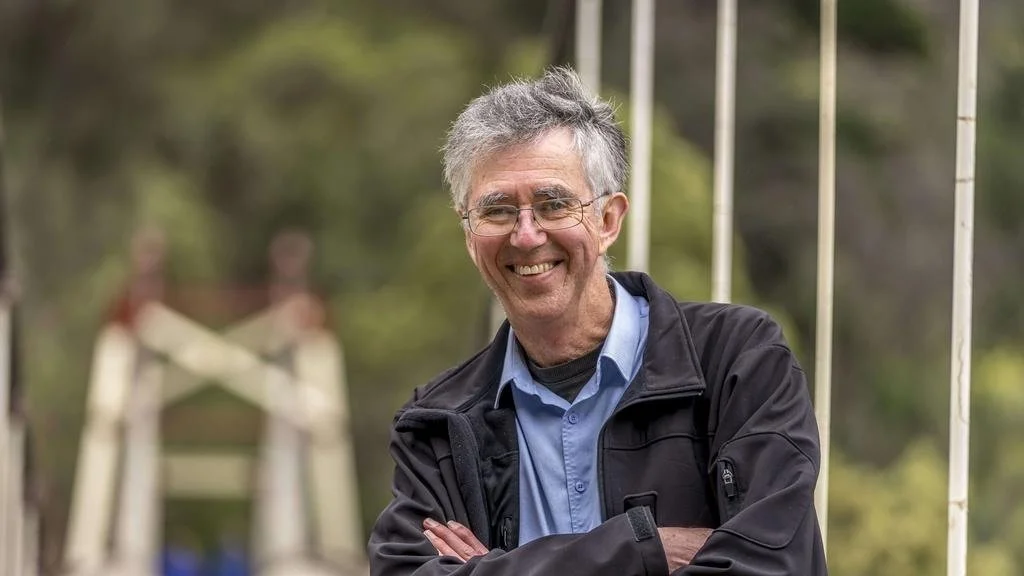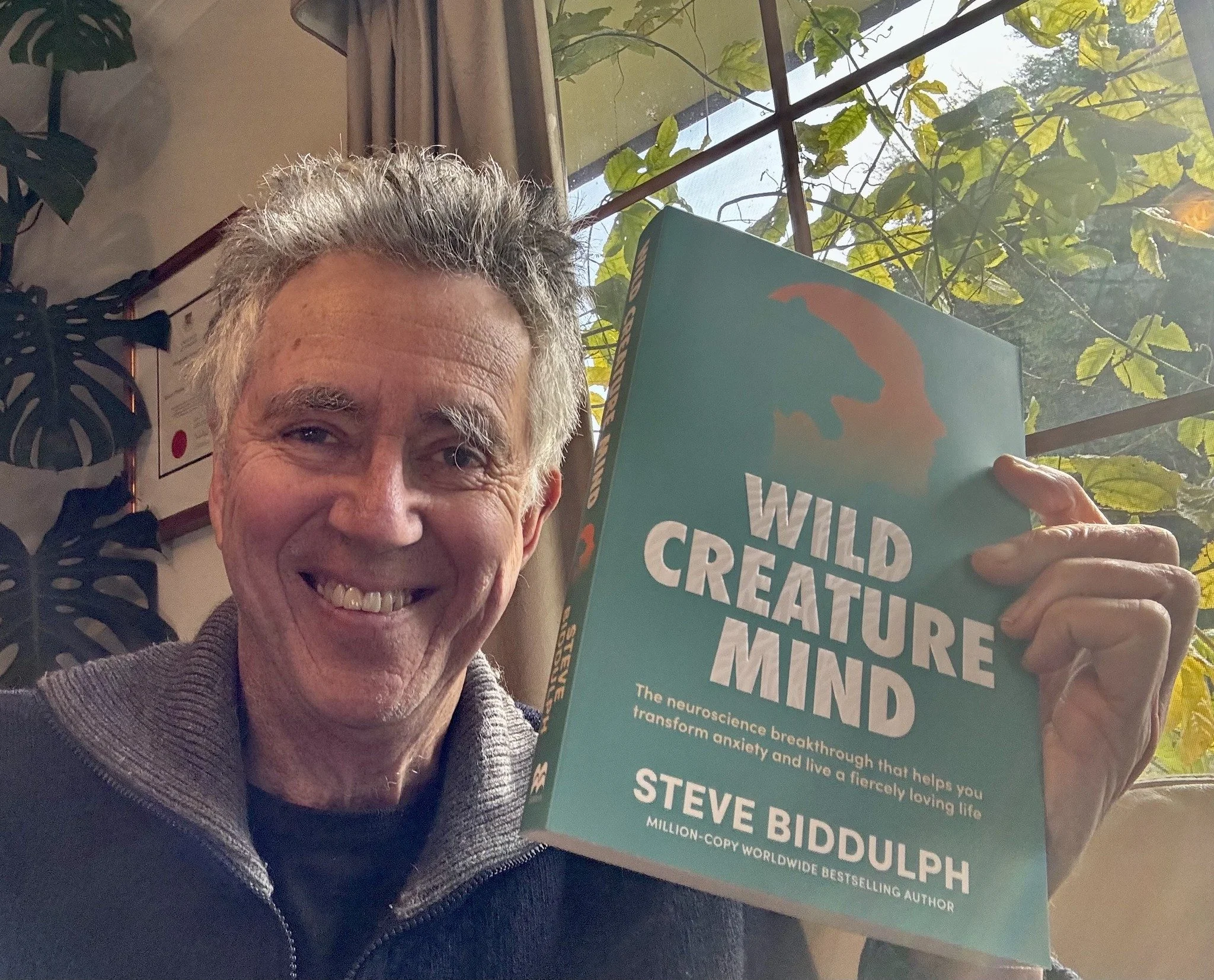The Importance of Knowing, You Belong
At the tender age of seventeen, still a student, Steve Biddulph was living with a tribe in Papua New Guinea. As part of the Village Scheme, Steve was learning about a village in the primary, raw, visceral sense. A sensory life, moving with the seasons. Almost like the stone age Steve recalls: “The women wore short dresses made of tobacco leaves and people had incredible tattoos on their faces.”
Togetherness was the key part of this functioning community. The community hunted for food and grew crops. At night they sat around a campfire. They talked and sang.
This experience left imprints on Steve that he carried with him throughout his life. He remembers the way that the locals held his hand.
“It was just so amazing, because if you shook hands with someone, for example, greeting, we would shake hands, they would hold onto your hand for the next 10 minutes. There was no pulling back. It's like, you're here. We're holding you. And so, you belonged.”
Steve’s early years were spent in Yorkshire, England. It was a time of industrialisation. Despite the noise and goings-on, Steve’s home life was wholesome. There was no phone but his grandmother lived down the street and his extended family were close by. People dropped in on one another. If Steve played up at school, the principal would inform a member of the family and the news would find its way back to his mum. One memory: the family walked over through the snow on Christmas day.
Once emigrated to Australia, it took time for Steve’s family to adjust.
“I would sometimes see mum at the kitchen table crying and it was because she, you know, missed her mum and her sisters and her friends back in England.”
It all turned out for the best but it did take some time to rebuild that sense of community.
“I think I came to value it and now I live in a kind of intentional community of other households of people who look out for each other a lot and I returned to living in a village again.”
So what of the many people who reside in cities now, somewhat removed from the village of old? In a time where many people live alone, or stick to their nuclear family without outside support, Steve recognises that an effort needs to be made. He encourages people to retain a connectedness with others in their community, for without, we suffer.
“When you live in the cities, I think you have to make your village and that's, you know, don't worry about decorating your nursery for a baby, look and think about building your village. Where are the other mums? Where are the old ladies that will be kind to you and look out for you and you look out for them?”
“It's hard because it's not built in anymore and if you're a bit shy, you might not be able to make a village and so you have to reach out if someone looks at you at the playground, someone looks a bit shy but hesitant. Go over and sit beside them and chat to them. They might turn out to be a lifelong friend, or at least you've improved their day.”
In Steve’s new book, Wild Creature Mind, he explores the neuroscience that can help to overcome anxiety. The book examines our connection, or disconnection, from our bodies, our bodies sensations and the feelings we so often push aside. Steve writes about the right hemisphere of the human brain, the one linked to our large vagus nerve- our sensory system. He calls this our Wild Creature Mind.
In one part of the book, Steve explores our innate need to be social. Our need to connect with others partners us importantly with our physical, emotion and spiritual needs.
This need, to be social with others, begins from birth.
Studies show that a baby’s focusing distance are exactly the distance from breast to face.
“If you are holding the baby, they can see your face that is the clearest thing and everything else is a blur. But they see your face. And if your face is looking in, gazing into their eyes, and your face looks, you know, settled and happy, then they will just go ‘Oh and everything's right in the world’. And so, we can bring this peaceful connection to our children.”
“A baby doesn't care if they live in a mansion or a tin shed. A baby, a little child, it doesn't even occur to them, you know. What they care about though, is the emotional vibe.”
“Studies show that even premature born babies in humidity cribs, babies track their eye movements and if mum and dad are standing looking in through the sides of the crib, the baby's eye movements will track to mum's face and then to dad's face and back to mum's face.”
Steve draws forth a memory from when he and his wife spent time in Calcutta, experiencing and absorbing the learnings from other families and cultures. What stood out to Steve was the emotional care he was given.
Steve accidentally fell into a big hole in the ground one night while walking back to his accommodation. He disappeared from sight, only to be pulled free by a group of roughly ten locals.
The experience, at once shocking and unexpected, rapidly showed a sense of support and care that surpassed language.
For some fifty years now, Steve has wanted to assist families- to connect deeply with one another and develop an understanding of what it is to be human. A great deal of this is enmeshed in our early experiences. In our childhoods.
Steve combined his work as a psychologist, a teacher, researcher and a writer to create better experiences for people from many walks of life. Steve is a Churchill fellow, studying family therapy and the non-drug treatment of young people with schizophrenia, in the United States. He began a program to support unemployed youth in 1977. He and his wife started the first ever phone counselling service for youth in Tasmania. Alongside 30 books, published in 31 different languages, Steve has dedicated five decades of his life to talking with families, students, schools, educators, educational organisations- all with the endeavour of improving outcomes for each person, each parent, each family, for the greater good.
Feeling a sense of belonging enables children, adolescents and young adults to feel safe enough to explore, play, grow- this too extends to neighbours, aunts, uncles, cousins, the new parent, the couples who were unable to have a child, the mum who has lost a child, the man who never found the one, the older man you see down the street getting his milk and paper- while those in busy, oftentimes stressed communities, built on individualism, can suffer.
What it comes back to are seemingly simple things, and yet, these are the things of life.
Strong communities care for one another. As Steve reminds us all, kindness and connectedness cares for us all.
Hear the Full Interview with Steve Biddulph on
For the Love of Play Podcast
Article by Sinead Halliday



